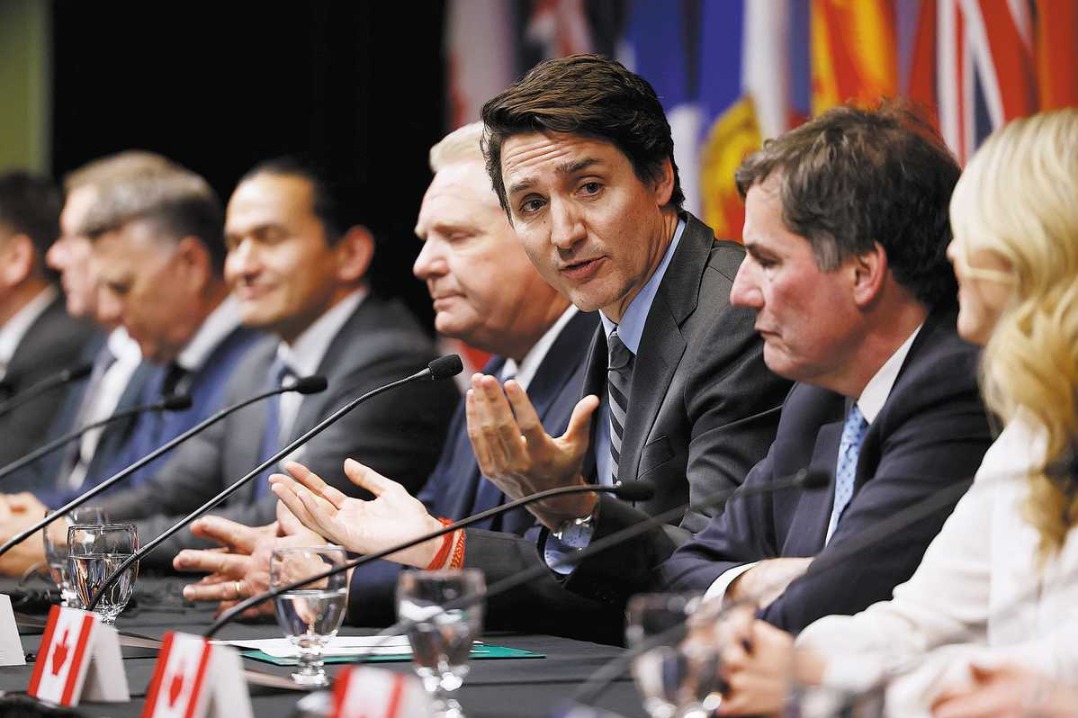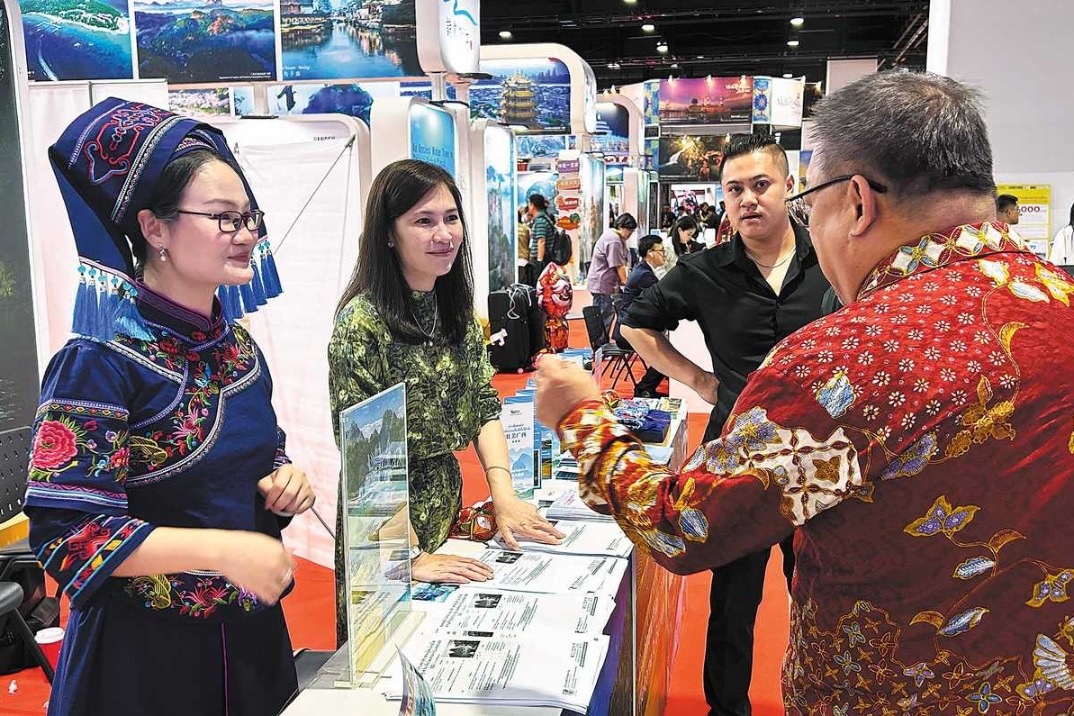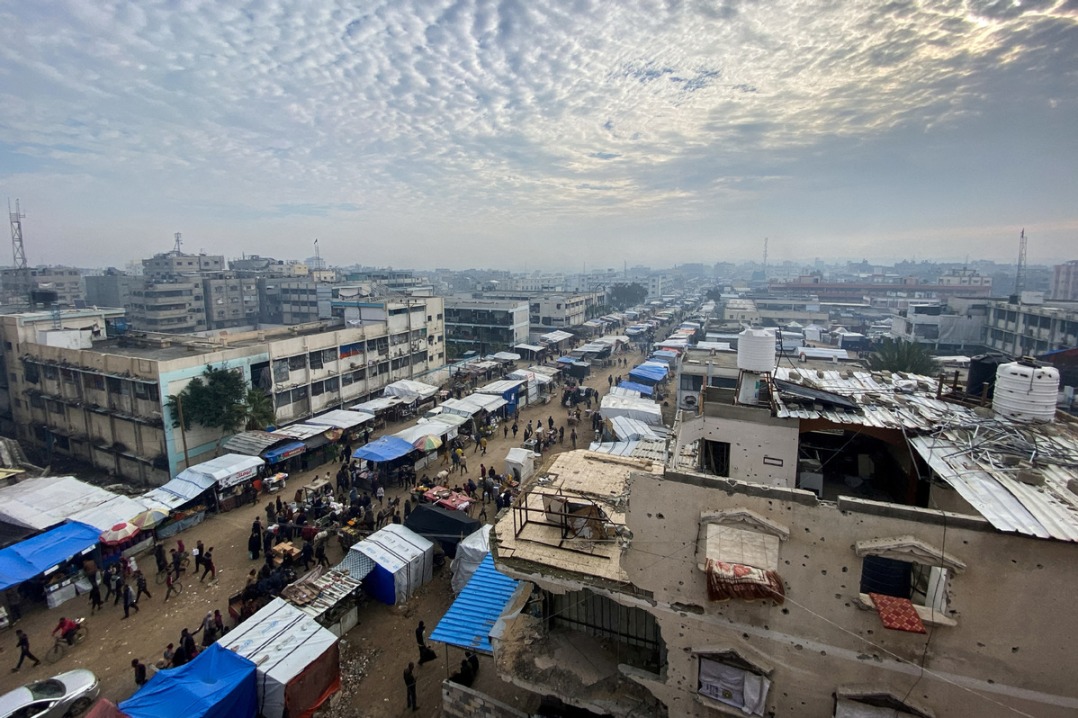ASEAN foreign chiefs confront key issues

Ministers meeting in Cambodia discuss Myanmar and ways to boost solidarity
Foreign ministers from the Association of Southeast Asian Nations are gathering in Cambodia for their first meeting of the year, with discussions on Myanmar, among other issues.
Cambodia, the bloc's chair for 2022, is hosting the ASEAN Foreign Ministers' Retreat until Thursday in the capital Phnom Penh in a hybrid format, according to the Cambodian Foreign Ministry. The meeting, which began on Tuesday, is being chaired by Cambodian Deputy Prime Minister and Foreign Minister Prak Sokhonn.
The event is the first in a series of meetings that Cambodia will hold as the ASEAN chair in 2022. It comes more than a year after Myanmar's military took power on Feb 1,2021, and detained civilian leaders including Aung San Suu Kyi.
The meeting will follow up on leaders' decisions from the 38th and 39th ASEAN summits last year, with views exchanged on how to further strengthen external relations with the bloc's dialogue partners, Cambodia said in a statement on Feb 10.
Discussions are also being held on maintaining ASEAN centrality, solidarity, and unity, with discussions on ways to build a more resilient, peaceful, and prosperous ASEAN community.
"Regional and international issues of common interest and concern will also be discussed in the meeting," the statement said.
All ASEAN members except Myanmar had confirmed their attendance, with six foreign ministers joining physically, Cambodia's Fresh News website reported, citing Cambodian Foreign Ministry Spokesman Chum Sounry.
"Myanmar's military leadership is now engaged in political brinkmanship with ASEAN under (Cambodian) Prime Minister Hun Sen's chairmanship this year," said Thitinan Pongsudhirak, professor and director of the Institute of Security and International Studies at Chulalongkorn University's Faculty of Political Science in Bangkok.
The reality is that either ASEAN ends up with nine members or it has to let Myanmar's military leadership join the meetings, and that puts the bloc in a quandary, said Thitinan.
Five-point consensus
Henry Chan, visiting senior research fellow at the Cambodian Institute for Cooperation and Peace, said the absence of Myanmar was expected because the ASEAN consensus now is on inviting a nonpolitical representative from the country if there is no implementation of a five-point consensus put forward by the bloc.
"The Myanmar absence from ASEAN will likely be the norm until such time that the domestic power equation is settled," Chan told China Daily.
Hoping to resolve the Myanmar crisis, ASEAN leaders reached the five-point consensus in April last year. It includes the appointment of a special ASEAN envoy to facilitate dialogue and a visit by the envoy to Myanmar.
Prak Sokhonn, as Cambodia's foreign minister, is the current special envoy but his visit is still pending.
Expecting ASEAN to continue to rely on unofficial consultation and closed-door diplomacy to address the Myanmar crisis, Paruedee Nguitragool, associate professor in international affairs at Chiang Mai University in Thailand, said there have been disagreements among member states over how to deal with Myanmar and what kind of engagement or disengagement should be pursued.
"Whatever decision might be at the meeting … ASEAN leaders must be firm and united in their common regional approach," she said.
Besides the Myanmar situation, Paruedee said she expects the foreign ministers to discuss issues such as the COVID-19 pandemic and economic recovery, as well as the geopolitical concerns that affect regional and international security.
































